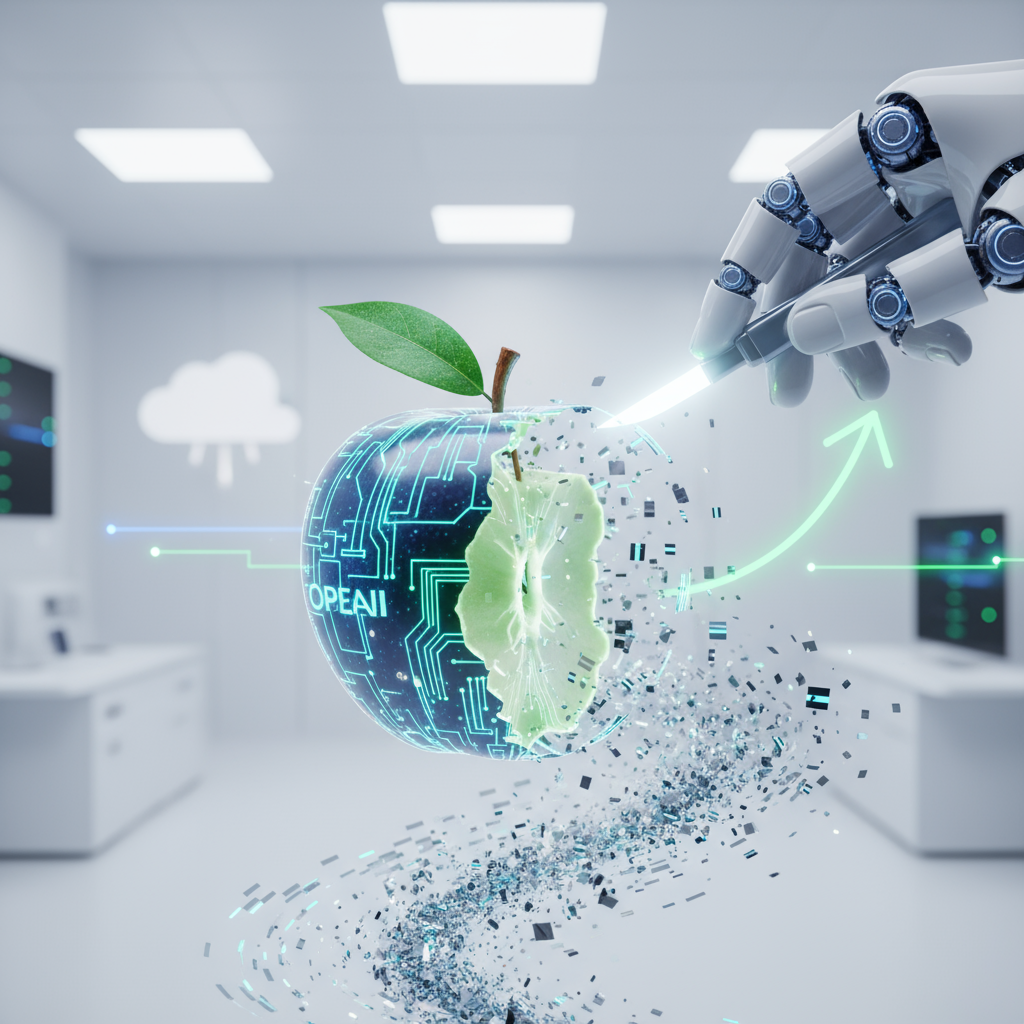OpenAI’s Data Diet: Why They No Longer Have to Keep *Everything* ChatGPT Creates

Remember that digital hoarder friend who kept every single email, no matter how trivial, “just in case”? For a while, OpenAI, the company behind ChatGPT, was in a similar, albeit much more high-stakes, predicament. A federal court order compelled them to preserve virtually all of their ChatGPT data, a monumental task stretching the limits of digital storage and data management. But a new development has changed the game, freeing OpenAI from this all-encompassing obligation, with some crucial exceptions. What does this mean for the future of AI, privacy, and ongoing legal battles?
This isn’t just about disk space; it’s about the very fabric of how AI operates, learns, and faces legal scrutiny. Let’s dive into the implications of this significant shift.
The Genesis of the Data Hoarding Order: The NYT Lawsuit

To understand why OpenAI was initially forced into this data preservation marathon, we need to rewind to late 2023. The New York Times filed a lawsuit against OpenAI and Microsoft, alleging widespread copyright infringement. The core of their claim was that OpenAI’s large language models (LLMs), including those powering ChatGPT, were extensively trained on the *Times’* copyrighted content without permission or compensation.
In May of this year, as the litigation progressed, the court issued a “preservation order.” This order was a standard legal maneuver in intellectual property disputes, designed to ensure that relevant evidence isn’t destroyed or altered before it can be examined. For OpenAI, this meant indefinitely keeping records of its ChatGPT data – specifically, any “output log data that would otherwise be deleted on a going forward basis.” Imagine the sheer volume of text, code, and interactions generated by millions of users worldwide; preserving all of that is an astronomical undertaking.
This order put OpenAI in a challenging position, requiring significant resources to store, index, and manage an ever-growing mountain of data. It also raised questions about user privacy and the practicalities of indefinite retention.
The Great Data Unburdening: What Changed and Why?
The tides turned on October 9, when Federal judge Ona T. Wang filed a new order terminating the blanket preservation requirement. OpenAI is now largely free to manage its data as it normally would, meaning it can delete data that previously would have been indefinitely retained. This doesn’t mean a free-for-all, however; the order explicitly carved out exceptions.
The reason for this change likely stems from a combination of factors. Courts often balance the need for evidence preservation with the practical burdens placed on defendants. Indefinitely preserving *all* future output data from a dynamically evolving and highly utilized service like ChatGPT presents an ongoing and potentially oppressive burden. As legal discovery progresses, the specific types of data truly relevant to the *Times’* claims may become clearer, allowing for a more targeted preservation approach rather than a broad, all-encompassing mandate.
Perhaps initial concerns about OpenAI destroying crucial evidence have been assuaged, or the sheer scale of the requirement proved impractical for sustained enforcement. Legal proceedings are iterative, and such adjustments are not uncommon as cases evolve.
Exceptions to the Rule: It’s Not a Blank Check
It’s crucial to understand that this isn’t a complete dismissal of OpenAI’s data preservation responsibilities. The new order specifically frees OpenAI from having to preserve “all output log data that would otherwise be deleted on a going forward basis.” This phrasing indicates that there are still certain categories of data that must be preserved.
For instance, data directly relevant to the *New York Times’* specific allegations, or data from prior periods that might fall under other discovery requests, would likely still need to be retained. The exceptions would also almost certainly include:
- Data explicitly requested in existing or future legal discovery: If the *Times’* legal team specifically asks for certain types of chat logs or training data, OpenAI would still be obligated to provide and preserve it.
- Data pertinent to ongoing investigations or audits: Other legal or regulatory bodies might have their own preservation requirements.
- Data subject to OpenAI’s own internal retention policies: OpenAI will still maintain data necessary for its own operations, security, and compliance with general data regulations (like GDPR or CCPA).
This revised order represents a more nuanced approach, moving away from a broad, potentially unsustainable mandate to a more targeted preservation strategy. It acknowledges the complexity of managing data for advanced AI models while still upholding the principles of legal discovery.
What This Means for OpenAI, Users, and AI Development
This development has several key implications:
For OpenAI: It significantly reduces the operational overhead and storage costs associated with indefinite data preservation. This newfound flexibility allows them to optimize their data management practices, potentially leading to more efficient model development and deployment. It might also alleviate some privacy concerns by allowing for more routine data deletion, aligning with “data minimization” principles.
For ChatGPT Users: For the average user, this change might not be immediately noticeable on a day-to-day basis. However, it reinforces the understanding that while your interactions help train AI, the long-term preservation of *all* your prompts and outputs isn’t guaranteed (and perhaps, for privacy reasons, isn’t always desirable). OpenAI’s own data retention policies will likely govern most user data.
For the Broader AI Industry: This case highlights the intricate dance between innovation, intellectual property, and legal accountability in the age of AI. The initial preservation order underscored the legal system’s power to demand transparency from AI developers. The revised order, however, shows a willingness to adapt these demands to the unique challenges presented by vast AI data sets, seeking a balance rather than an absolute. It also sets a precedent for how courts might approach data preservation in future AI-related lawsuits.
The Enduring Debate: IP, Data, and the Future of AI
While OpenAI breathes a sigh of relief regarding its data storage, the core legal battle with the *New York Times* continues. This data preservation saga is merely a side plot in a much larger narrative about copyright, fair use, and the ethical implications of training AI models on existing creative works.
The revised order doesn’t diminish the seriousness of the copyright infringement allegations; it merely refines the procedural requirements for evidence gathering. As AI technology continues its rapid advancement, the legal and ethical frameworks governing its development and deployment will continue to evolve, often in messy, contested ways. OpenAI’s data journey offers a compelling glimpse into this ongoing, crucial legal evolution.

